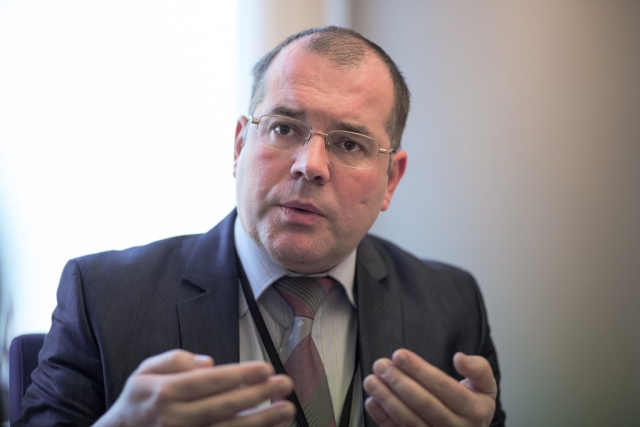MEP Mamikins on the Georgia Reports
EXCLUSIVE INTERVIEW
On August 30, the European Parliament’s Committee on Foreign Affairs (AFET) previewed the first implementation report on the Georgia and EU Association Agreement (AA) prepared by its standing rapporteur on Georgia, MEP Andrejs Mamikins (Socialists and Democrats, Latvia). The report was generally positive, and Mamikins praised Georgia for making steady progress in AA implementation, much to the chagrin of the opposition, which accused Mamikins of turning a blind eye to the alleged behind-the-scenes governance in Georgia and many other existing challenges, notably in media freedom and human rights. The government was quick to respond that the positive tone of Mamikin’s draft report should be a matter of pride for every Georgian and a subject above petty local politics. We spoke to MEP Mamikins who was kind enough to share his first-hand perspective on the matter in an exclusive interview with GEORGIA TODAY.
Based on your report, what would you say are the strongest and weakest points of Georgia’s EU progress at the moment?
First of all, I would like to thank my colleagues - we drafted a lot of amendments in the report. I personally introduced 68 amendments, some of them dedicated to combatting the deficit of democracy in Georgia. You know me as friend of Georgia but at the same way I’m very critical because I want to see Georgia even better, so some of the drafted amendments are about democratic deficits, namely labor rights, gender equality, and children's rights in Georgia, all very necessary to bring Georgia up to the highest European standards. We know Georgia as a fully European country in spirit, and steps like these are very necessary. I'm not going to speak about the situation in other fields but of course Georgia is implementing all the necessary norms from the European Union into its everyday life. I have to underline Georgia’s membership in the EU: for this, a country must fulfill three Copenhagen criteria, the first of which is a well-functioning and competitive market economy, and we know Georgia still has a long way to go in this direction. The other two criteria are respect for democracy and human rights and in this matter the political elites and citizens should take the lead; it is important for the EU to see the Georgian people, and not only the President and Prime Minister of Georgia with full ownership of the democratization process. Georgians have always been politically active and politically informed, even down to taxi drivers! The citizens of Georgia are very interested in the full membership of Georgia in the European Union.
Alongside the official report, the EU also commissioned independent expert Nona Mikhelidze, who is much more critical when assessing the situation in Georgia. Are you familiar with this report?
I am. Usually every committee in the European Parliament tries to use a lot of opinions and NGO research to get a picture of the current situation. You are right that this report was critical but on the other hand it helped us to understand the current situation. A lot of items, topics and opinions from that report are being incorporated into our report because we are still analyzing the amendments. If they are useful for the Members of the European Parliament and useful in Georgia, then I'm sure that we will stand behind them to implement all the necessary measures to bring Georgia closer to the European Union.
Do you agree with it, considering many of the conclusions are quite conflicting with your own report?
I disagree that it’s conflicting. It's helping each other in a situation that is 50/50; we weren’t voting during the first consideration and the voting time will be in October or November. That means that the committee will accept the report after the second consideration in the next days or weeks. We are carefully listening to all the experts, to the Georgian officials, to the Georgian opposition, to the free media - we are listening carefully to all opinions.
The Georgian opposition accused you of being too lenient on the country and emphasis was put on your unofficial visits to Syria and Assad. You already answered their allegations, but on your next trip might you talk about the recognition of Abkhazia and South Ossetia with President Assad?
I paid two private visits to Syria in 2016 and 2017; I met the representatives of office of Staffan de Mistura, the United Nations and Arab League Envoy to Syria, and the Red Cross and other representatives. I did it because we MEPs are still thinking about the Syrian refugees, because this country has been at Civil War for the last seven years. I'm a friend of Georgia and what I will say now is a first for the open media: I called the administration of Bashar Assad and met them twice and I pleaded with them not to recognize Abkhazia and South Ossetia as independent states because these are natural parts of Georgia; you can develop relations between Syria and Georgia [I said]- and if you want, without recognition of Abkhazia and South Ossetia. This was my request to the Syrian administration. We have to try to change this situation using diplomatic channels to recognize Abkhazia and South Ossetia as part of the Georgian State.
Interview by Vazha Tavberidze












